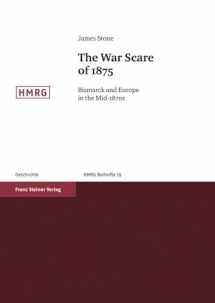
The War Scare of 1875: Bismarck and Europe in the Mid-1870s (Historische Mitteilungen Im Auftrage Der Ranke-Gesellschaft)
Book details
Summary
Description
In the spring of 1875, Europe appeared to be on the brink of armed conflict. France had just passed a new army law which seemed to be a prelude to a war of revenge. Berlin responded with saber-rattling and threats of preventive war. When Russia and England intervened to preserve the peace, Germany responded that relations with Paris had never been more peaceful. Ever since this historic anticlimax, the causes of the 'war-in-sight' affair have been the subject of much academic controversy. The focus of the debate has been the problem of Bismarck's intentions. Based upon extensive archival research, this study presents a new approach to unraveling this central riddle that places the war scare of 1875 into the larger framework of the Chancellor's entire paradigm for handling European power politics from 1873-77. This perspective shows clearly that the crisis did not represent - as is often argued - a 'turning point' in German foreign policy; in fact it resulted from well-known, long-term axioms of Bismarck's statemanship.


We would LOVE it if you could help us and other readers by reviewing the book
Book review



